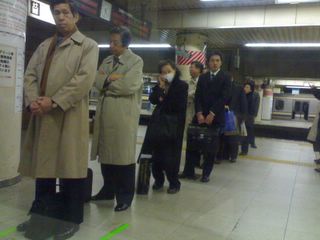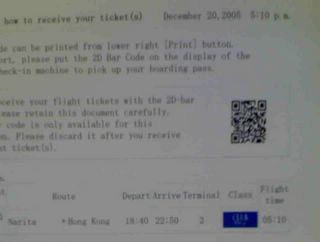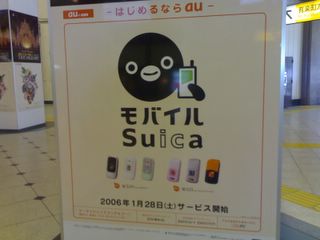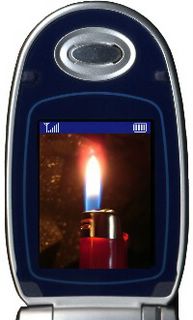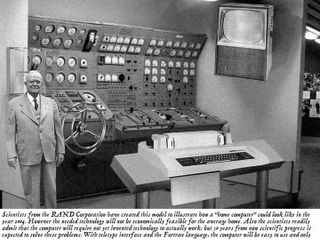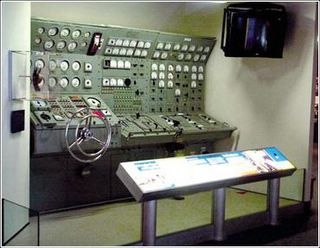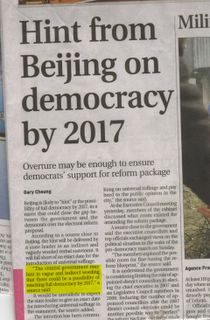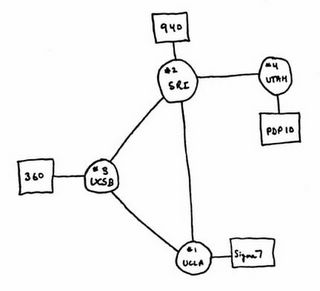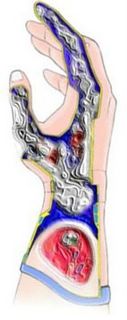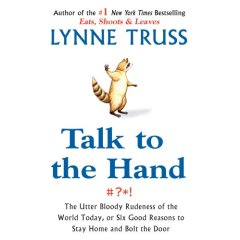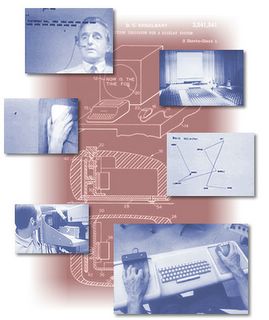
37 Years ago today saw an historic event that has thoroughly influenced all our lives.
In what has come to be known as the 'Mother of All Demos' Douglas Engelbart demonstrated the first computer mouse, hypertext, screen windowing, computer presentation (such as PowerPoint), online system,and other modern computing concepts at the Fall Joint Computer Expo in San Francisco on December 9, 1968.
Funded by ARPA, NASA, and the US Air Force, the oNLine System (NLS) was designed around an SDS 940 time-sharing computer with a 96 MB storage disk. It could support up to 16 workstations.
The system was completely set up to demonstrate network technology, which at the time was still part of the future. Each workstation consisted of a raster-scan monitor, a three-button mouse, and a device known as a chord keyset. The input from the keyboard was sent to a 5-inch CRT monitor, which was enclosed by a special cover and a "superimposed" video image was then received by a professional-quality black-and-white TV camera. The TV camera information was then sent to a closed-circuit Camera Control and Patch Panel, and, finally, displayed on each workstation's video monitor.
The landmark 90 minute session gave a true glimpse of the future. It showed things like object addressing, dynamic file linking, and shared-screen collaboration. NLS was linked via leased telephone lines to ARC members in Menlo Park, California and the main display of the presentation was on a large 20 foot projection screen with Engelbart addressing the audience wearing a headset.
At this point I'd like to remind you it was 1968.
Douglas Engelbart was a true visionary, The members of his team later went on to the famous Xerox PARC Lab, fuelling the fire that keeps Silicon Valley's virtual chimneys smoking to this day.







